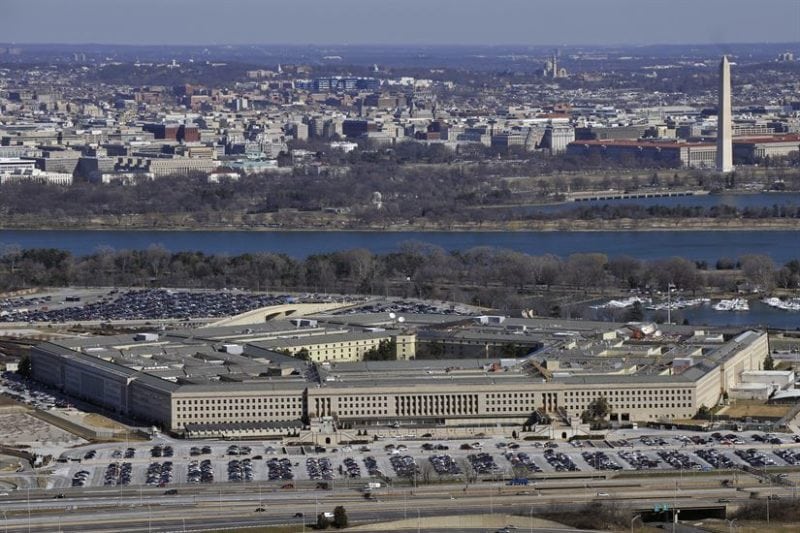HASC Chair Rogers Calls for GAO Investigation into Space Command HQ Decision

The Pentagon, headquarters for the U.S. Department of Defense. Photo: DoD.
The chair of the House Armed Services Committee (HASC) is calling on the Government Accountability Office (GAO) to conduct an investigation into the Biden administration’s decision to keep U.S. Space Command headquartered in Colorado.
Rep. Mike Rogers, R-Ala., the HASC chair, sent a letter to the head of GAO on Wednesday, Aug. 23 requesting the agency review the process for selecting Colorado, to include all updates since the last report on the matter was released in June 2022.
“As you are aware, there have been concerns raised that untoward political interference played a major role in the selection of Colorado Springs by President Biden,” Rogers wrote in a letter to Gene Dodaro, the U.S. comptroller general. “National security decisions of this magnitude and significant economic interest require the process to be standardized, repeatable, transparent, and deliberate. Based on numerous administration officials talking to the press, the decision by President Biden appears to be anything but. Preferential decision-making by the President because of certain state laws has widely been publicized as a major factor but was never included in the basing requirements.”
Biden’s decision last month to keep Space Command in Colorado Springs, Colorado, where its interim headquarters have been located, reversed a Trump administration recommendation to base the command in Huntsville, Alabama.
Rogers on Tuesday announced he’s also invited Air Force Secretary Frank Kendall; Army Gen. James Dickinson, head of Space Command; and Space Force Chief of Space Operations Gen. Chance Saltzman for a public hearing to discuss what he said was a “politically-motivated decision.”
“Long-term, permanent basing decisions should stand up to scrutiny and not be politically motivated based on social policy preferences or based on advocacy by administration officials. Instead, such a process should remain analytical and focused on clearly announced criteria and requirements that can be publicly scrutinized. Anything but a transparent process played out in the final decision for USSPACECOM headquarters under this administration. The public deserves an independent review to understand how this basing process went awry and failed to follow transparent and repeatable steps which would have garnered trust in the final basing decision for USSPACECOM headquarters,” Rogers wrote in his letter.
The last GAO report released on the matter in June 2022 concluded that the Trump administration recommendation to move Space Command from Colorado Springs to Huntsville, Alabama was made above board, while noting the decision contradicted inputs from Dickinson, then Chief of Space Operations Gen. John “Jay” Raymond and former Vice Chairman of the Joint Chiefs of Staff Air Force Gen. John Hyten.
Rogers’ letter asks GAO to investigate the process since that point and leading up to Biden’s decision, to include information on how requirements for selecting a Space Command headquarters location changed since the initial Trump administration recommendation and who directed any changes. The request also seeks details on why Kendall did not make the final decision and how Dickinson was involved in the selection process.
Rogers also requests information on any emails, briefing materials or other documents “that show how the basing process was altered, who altered it and how the final decision was eventually made that GAO can evaluate in its reporting.”
Air Force Brig. Gen. Patrick Ryder, the Pentagon press secretary, told reporters earlier this month the department is now focused on “expeditiously carrying” out the establishment of Space Command’s headquarters in Colorado and refuted claims that politics played a role in the decision.
“Politics played no role in this decision. As we’ve talked about for some time, the Department of the Air Force has been doing a very thorough analysis and assessment for some time. And so, as you look back at this, it was a very thorough, deliberate process that was backed up by data and analysis and in compliance with federal law and DoD policy. Ultimately, a decision had to be made, recommendations were provided and the president made a decision. And that decision came down to operational readiness,” Ryder told reporters at the time.
Ryder also noted Space Command is set to achieve full operational capability this month, after having reached initial operational capability in August 2021.